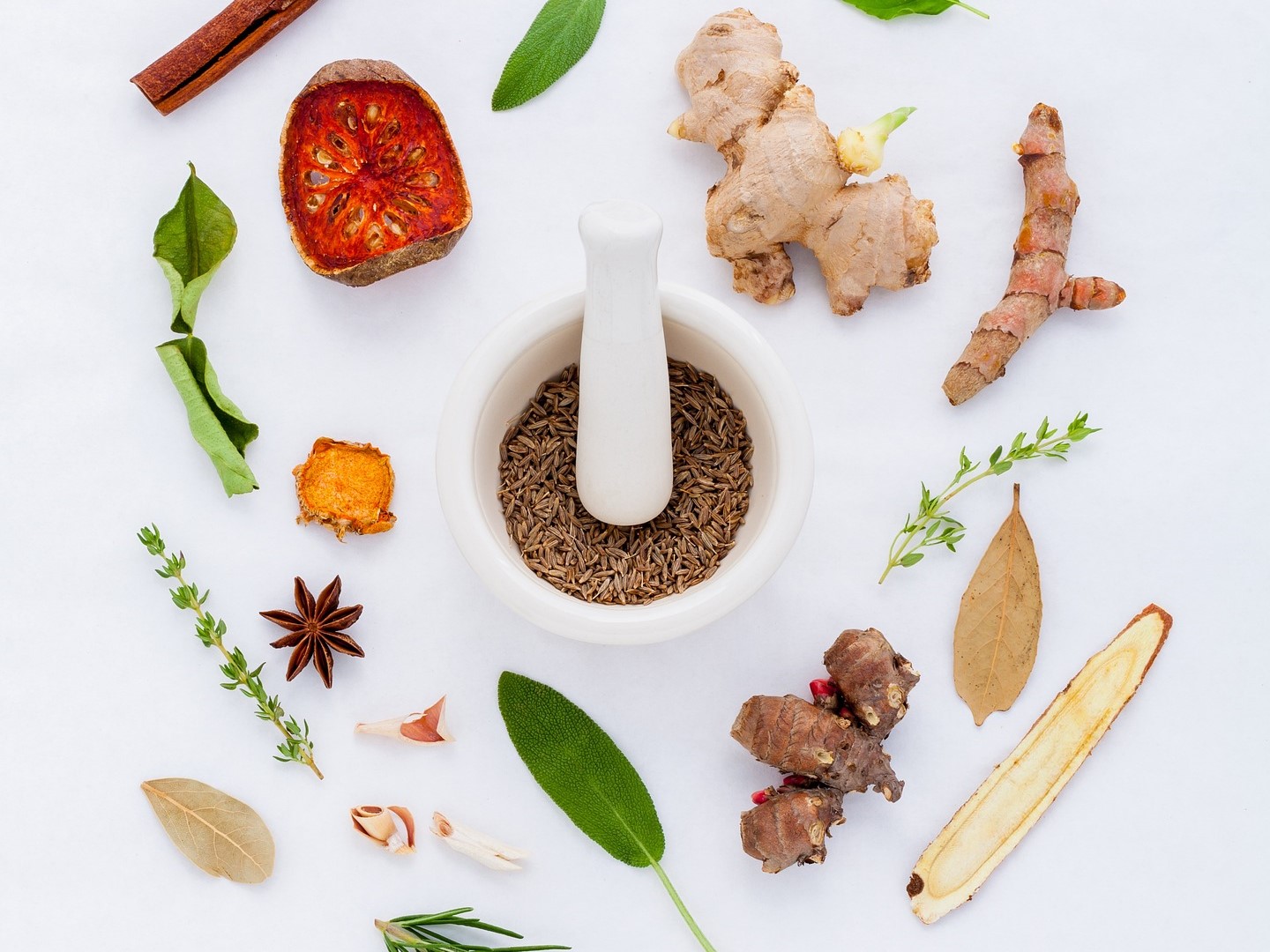Can herbs cure diseases? This is an age-old question that has puzzled many for centuries. In the last few years, more and more literature has emerged pointing to natural remedies made from herbs as potential treatments for various health issues.
From revered traditional cultures to modern scientific studies, growing evidence suggests that plants, fruits, and other organic matter may offer numerous extraordinary health benefits. While certainly not a substitute for any medical advice or intervention given by doctors. All-natural solutions can be worth exploring to get your body back in balance.
So let’s take a closer look at herbs as complementary and alternative medicine and see if they can effectively treat certain health issues.
What are Herbs?
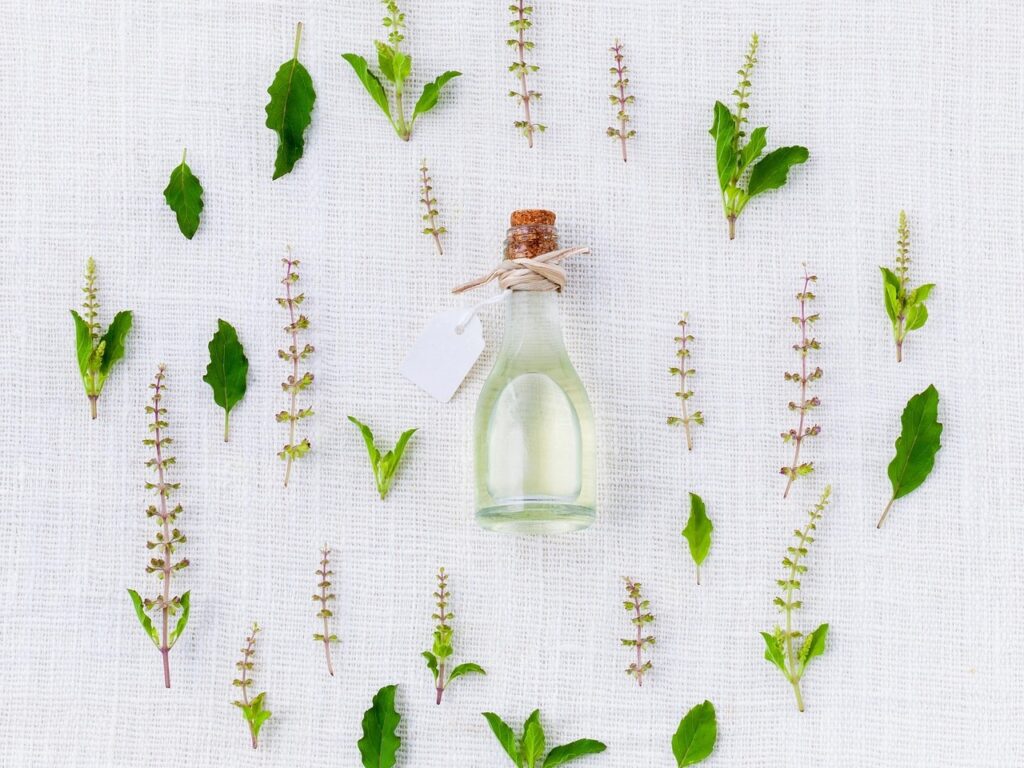
Herbs have been used worldwide for centuries in culinary dishes and traditional remedies. They are a type of plant that includes leaves, roots, flowers, or seeds. Commonly, herbs are used as flavorful additives to meals or teas.
Herbs have also long been used to create herbal remedies historically utilized as alternative medicine and as a food supplement. While some methods and ingredients may differ from culture to culture, several herbs are believed to possess medicinal properties across different cultures and nations.
Can Herbs Cure Diseases?
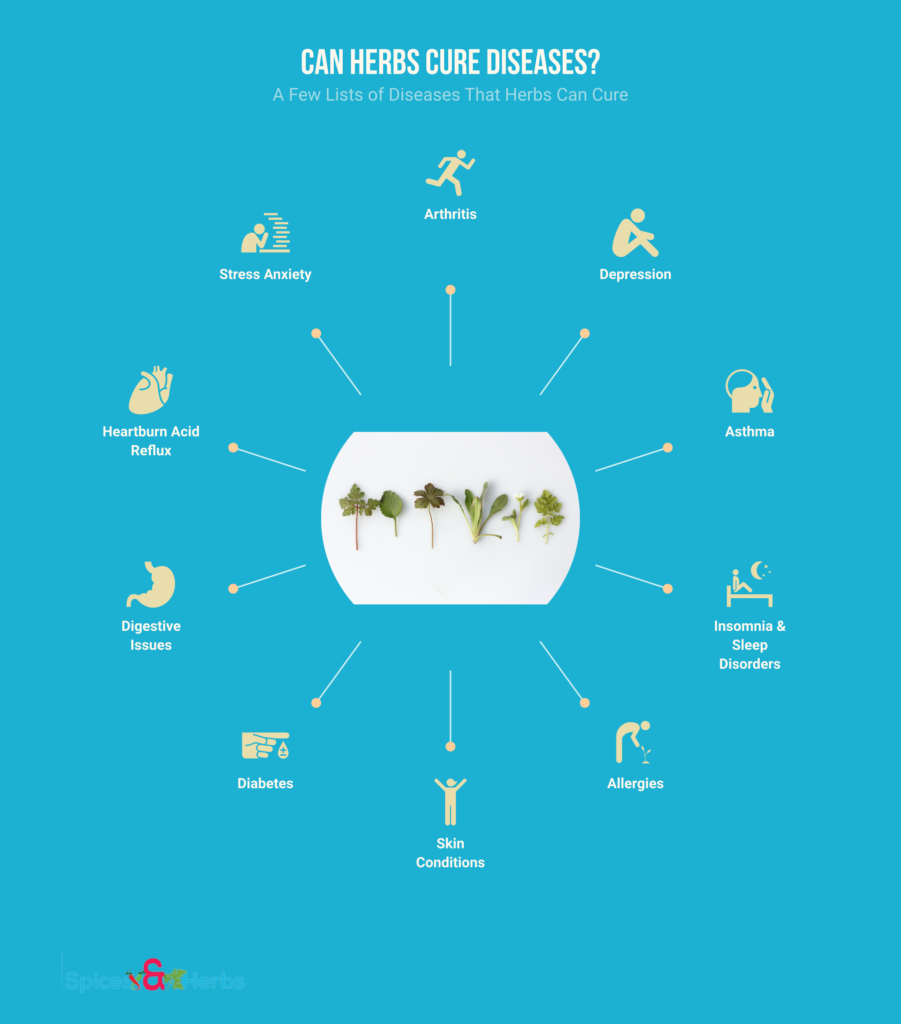
The short answer is yes—herbs effectively treat various diseases and conditions. Plants are powerful sources of medicine. Herbs contain active compounds that can treat illnesses and reduce symptoms without causing harm to the body. In fact, many pharmaceutical drugs are based on compounds found in plants.
The active ingredients in herbal medicines interact with the human body systems on a cellular level. Here are some diseases that herbs can cure.
🍃Arthritis
Arthritis is an inflammatory joint disorder affecting millions of people worldwide. The pain associated with arthritis can be debilitating and cause difficulty performing everyday tasks like washing dishes, walking up stairs, or even getting out of bed in the morning.
Fortunately, there are several herbal remedies available to help ease the symptoms associated with arthritis. Some popular herbs include turmeric, ginger, white willow bark, and devil’s claw. All have anti-inflammatory properties that can help reduce swelling and relieve pain.
🍃Depression
Depression is a serious mental health condition that affects how you feel, think, and handle daily activities such as work or school responsibilities. It’s caused by an imbalance of brain chemicals called neurotransmitters—chemicals responsible for regulating moods and emotions. Certain herbs such as St John’s wort, lavender oil extract, and passionflower extract have been shown to act on these neurotransmitters positively. Helping to improve moods and reduce feelings of depression in those who suffer from it.
🍃Asthma
Asthma is a chronic lung disease characterized by episodes of breathing difficulty. It usually occurs due to inflammation in the airways leading from your nose and mouth into your lungs. Herbs like turmeric root, garlic bulb extract, and ginger root extract all contain anti-inflammatory compounds that help reduce airway inflammation. Associated with asthma attacks when taken orally or applied topically on the chest area for relief from wheezing associated with asthma attacks.
🍃Insomnia & Sleep Disorders
Insomnia is a sleep disorder characterized by difficulty falling or staying asleep at night. Despite having adequate opportunities for restful sleep during the daytime hours. This often leads to fatigue during waking hours and other related issues such as irritability or anxiety due to lack of sleep quality or quantity.
Valerian root has long been used as an herbal remedy for insomnia due to its sedative effects. Its calming effects can help relax both body and mind before bedtime. While also helping regulate sleep cycles over time. Other herbs like chamomile tea, lavender oil, kava root, hops flowers, skullcap herb, magnolia bark, and lemon balm leaf extract have also been known to relieve insomnia when consumed in small doses over time.
🍃Allergies
Allergies are bodily reactions caused by exposure to certain substances (called allergens), which may vary from person to person; these reactions typically involve sneezing/coughing fits along with itchy eyes/nose/throat.
Quercetin is an antioxidant found in many fruits/vegetables known to inhibit histamine production. Histamines are one of the main components responsible for allergic reactions. Thus quercetin has been used effectively as an effective natural remedy against allergies when taken orally or applied topically on affected areas.
Other herbs, such as nettle leaf extract (also known as stinging nettle), and butterbur root extract, can reduce allergy symptoms when consumed regularly over time.
🍃Skin Conditions
Skin conditions like eczema can cause redness/inflammation and dryness/itching on certain body parts. It may be caused internally (due to stress levels etc.) or externally (due to contact with allergens etc.)
Aloe Vera gel is a well-known natural remedy against skin conditions due to its anti-inflammatory properties. It helps soothe redness/irritation while also providing hydration which helps keep skin moisturized & prevent further damage caused by dryness or itching. Other topical herbal ointments contain calendula flower extract (marigold), chamomile flower powder, thyme leaf oil & tea tree oil. It can also be used effectively against skin conditions such as eczema when regularly applied to affected areas over time.
🍃Diabetes
Diabetes is a metabolic disorder characterized by elevated blood sugar levels resulting from diminished insulin production. If left unchecked, this usually leads to increased risk factors associated with heart disease.
Taking herbal supplements such as holy basil leaf powder & cinnamon bark powder contain compounds specifically targeting blood sugar levels, lowering them slowly & gradually, thus reducing any health risks associated with diabetes over time. Other herbs like fenugreek seed powder & gymnema sylvestre leaf powder have also proven beneficial against diabetes when taken orally twice daily over weeks or months, depending on the severity of the treated condition.
🍃Digestive Issues
Digestive issues, including indigestion, stomach upset, irritable bowel syndrome, bloating, constipation diarrhea, can cause significant discomfort if left untreated. These issues may arise due to poor dietary habits, intake of medications, antibiotics, etc. Thus, it makes the regular use of certain herbs necessary to combat underlying causes of digestive disorders effectively and efficiently.
Peppermint essential oil, peppermint leaf powder, caraway seed, and powder dill weed herb contain compounds designed to aid digestion. While also easing any gas pains and spasms that may present themselves after large meals of fatty foods.
Additionally, other herbal teas contain chamomile flowers, fennel seed licorice, root marshmallow plant root, and slippery elm bark rooibos herb. All provide relief against common digestive issues once taken regularly multiple times each day course of one to two weeks, depending upon the severity of the issue being treated.
🍃Heartburn Acid Reflux
Heartburn and acid reflux refer to the same condition wherein stomach contents move back up the esophagus, causing a burning sensation in the throat and chest. This usually happens after eating certain foods, spicy items, acidic drinks, etc. Thus, regular use of antacids is necessary to combat underlying causes effectively and efficiently.
Taking herbal supplements containing marshmallow plant, root licorice, and root aloe vera gel all provide relief against heartburn acid reflux when taken immediately after meals and large servings of fatty foods multiple times each day course a few days, depending upon the severity issue being treated.
🍃Stress Anxiety
Stress, moderate depression and anxiety both refer to psychological states wherein the individual feels overwhelmed, anxious, and unable to cope with their current situation in life with Regular use of certain herbs like essential oils and aromatherapy products.
All help reduce feelings of stress, anxiety, relaxation calmness once inhaled through air diffusers. Vaporizers are massaged onto areas where tension builds up quickly and easily multiple times each day for a few days, depending upon the severity of the issue being treated.
These lists of dietary supplements and essential oils are just some of the many natural remedies available to help treat common conditions safely & efficiently.
Benefits of Herbal Medicine to Treat Common Conditions
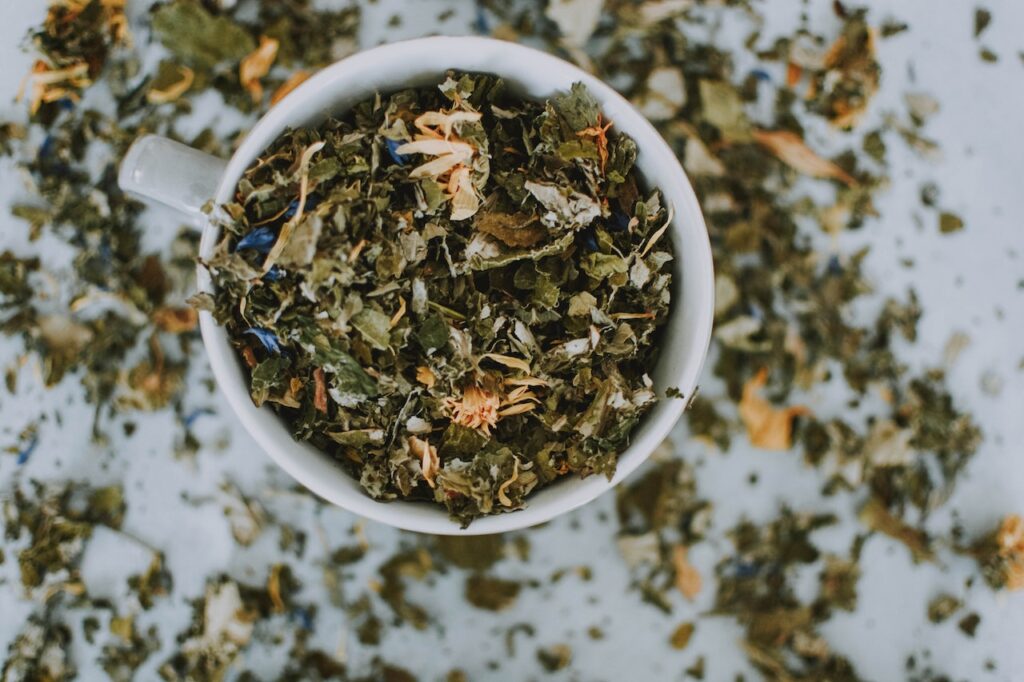
Unlike conventional medicine, dietary supplements are made from natural ingredients derived from plants and herbs. These remedies are often more gentle on the body than their synthetic counterparts, making them a great option for people seeking effective yet safe treatments. Here’s a look at the benefits of herbal medicine in treating common conditions.
1: Lower Risk of Side Effects
One of the main advantages of herbal medicine is that it has fewer side effects than many conventional treatments. It is because herbal remedies typically comprise multiple ingredients that work together to target the underlying problem rather than just suppressing symptoms, as many pharmaceutical drugs do. The result is a powerful treatment that is easy on your body and can be tailored to your needs.
2: Affordable Treatment
Herbal medicines are also much more affordable than prescription medications or over-the-counter products. In many cases, you can find herbs growing in your backyard! Additionally, plenty of online resources are available to help you source quality herbs if you don’t have local access.
Plus, most herbal medicines can be prepared at home with simple ingredients. So you don’t have to worry about purchasing expensive pre-packaged products or paying for costly consultations with an herbalist or naturopath.
3: Positive Impact on Your Overall Health
As mentioned, many herbs have antioxidant properties that can help protect cells from damage caused by free radicals and toxins in the environment. While others may help boost immune system function or promote better sleep quality, leading to improved mental clarity and increased energy levels throughout the day.
Furthermore, herbs won’t interfere with other medications since they’re natural products. So you can take them alongside any prescriptions without worrying about dangerous interactions in your body.
4: Easily Accessible Information About Herbs
The internet has provided us with information about different types of herbs. And how they can benefit human health in various ways. So plenty of useful information exists if you’re considering using herbal medicine for chronic pain relief or digestive troubles. Making it easy for anyone to get started with this form of treatment without any prior knowledge or experience in this area.
Additionally, many websites provide detailed instructions on preparing different teas or tinctures (concentrated liquid forms) from these plants. It eliminates any guesswork when it comes time actually to make them at home.
5: Customizable Solutions
Since every person’s body responds differently to different treatments – one size does not fit all when it comes to healing through herbal medicine! This means that you can customize your remedy depending on what works best for your unique situation instead of relying solely on pre-made products, which may only effectively address some aspects of your problem.
Different Types of Herbs and Herbal Preparations
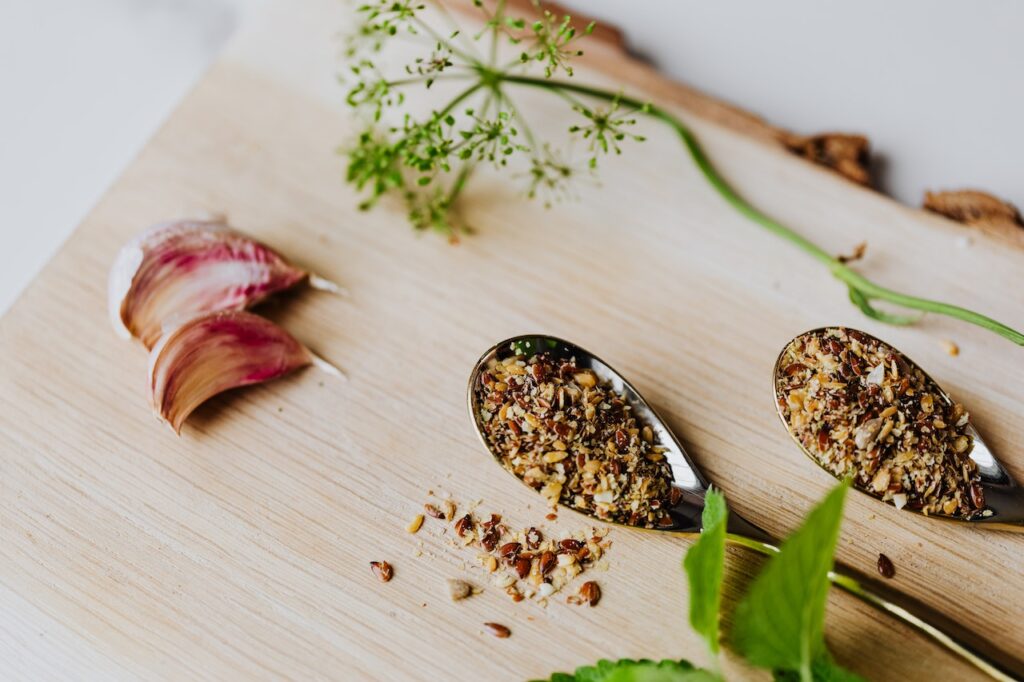
Here is the list of UK’s popular herbs available to treat common ailments:
🌿Echinacea
This herb is best known for boosting the immune system and fighting colds and flu. It can be taken as a tincture or tea made by steeping two teaspoons of dried echinacea root in one cup of boiled water for around 15 minutes. Take it three times daily at the first sign of illness for maximum effectiveness.
🌿Ginkgo
Ginkgo is an ancient Chinese herb used for centuries to improve circulation and cognition. It can be taken as a supplement or brewed into a tea using two teaspoons of dried ginkgo leaves steeped in one cup of boiling water for 10-15 minutes. Drink up to three cups per day for optimal results.
🌿John’s Wort
This herb is often prescribed as an antidepressant thanks to its mood-boosting properties. To prepare it as a tincture or tea, pour 1/4 cup boiling water over two teaspoons of dried St. John’s wort flowers and let steep for 10 minutes before straining through cheesecloth or coffee filter paper. Drink up to three cups per day as needed or take 30 drops (1 ml) three times daily as an alternative method.
🌿Garlic
Garlic has been used throughout history to treat infections thanks to its antimicrobial properties; it can also help lower blood pressure when consumed regularly over time. To make garlic tea, add four cloves of minced garlic to one cup of boiling water; cover with a lid and allow it to steep for at least 10 minutes before drinking up to three cups per day as needed (it tastes much better if you add a teaspoon of honey). Alternatively, garlic supplements are available if you don’t like the taste or smell.
🌿Ginseng
Ginseng is another ancient Chinese remedy gaining traction among modern health enthusiasts thanks to its energizing effects on the body; it can also reduce stress levels when taken regularly over time. To make tea out of this herb, simply add one teaspoon of minced ginseng root (or one tablespoon of dried root powder) into one cup of boiling water; cover with a lid and let steep for at least 10 minutes before drinking up to three cups daily if desired (honey makes it tastier!). You can also buy pre-made ginseng teas or supplements for an easier way out!
🌿Saw Palmetto
Saw palmetto is a type of palm tree native to Florida often used to treat prostate issues. It is believed to reduce inflammation in the prostate, which can lead to improved urinary function. Saw palmetto could be prepared as a tea by adding 1 teaspoon of dried saw palmetto berries per cup of boiling water. After steeping for 10 minutes, it can be strained and enjoyed hot or cold.
🌿Goldenseal
Goldenseal is an herb used for centuries by Native Americans to treat various illnesses, such as stomach ulcers and infections. It contains berberine, an active ingredient with anti-inflammatory and antimicrobial properties. Goldenseal should not be used for more than two weeks due to its potential side effects. To prepare goldenseal tea, add 1 teaspoon of dried goldenseal root per cup of boiling water and steep for 10 minutes before straining.
🌿Chamomile
Chamomile is one of the oldest medicinal herbs with roots in ancient Egypt and Greece. It can treat digestive issues such as indigestion and nausea and skin irritations such as acne and eczema. To make chamomile tea, add 1 teaspoon of dried chamomile flowers per cup of boiling water and steep for 5-10 minutes before straining it through a fine mesh sieve into a mug or teacup.
🌿Valerian Root
Valerian root treats insomnia, anxiety, headaches, depression, and other related disorders due to its sedative effects on the body’s nervous system. To prepare valerian root tea, add 1 teaspoon of dried valerian root per cup of boiling water and steep for up to 15 minutes before straining it through a fine mesh sieve into your mug or teacup.
🌿Ginger
Ginger root offers medicinal benefits, such as reducing inflammation and aiding digestion. Ginger root can be prepared by slicing 1 inch off a fresh ginger root and then placing it in boiling water with honey (optional). Let it simmer on low heat for 15 minutes, then strain before drinking while still hot!
🌿Feverfew
It is a member of the daisy family that can treat migraine headaches. The active ingredient in feverfew is parthenolide, which helps reduce inflammation in the blood vessels around the brain. To prepare feverfew as a remedy, grind or chop fresh leaves into small pieces and add them to a cup of boiling water. Let it steep for 10-15 minutes before straining it into another cup. Drink this tea twice daily for the best results.
🌿Milk Thistle
Milk Thistle is an herb that can treat liver diseases such as hepatitis and cirrhosis. The active ingredient in milk thistle is silymarin, which helps protect the liver from toxins and free radicals. To prepare milk thistle as a remedy, soak one teaspoon of crushed seeds in one cup of cold water overnight. Strain the mixture into another cup and drink it on an empty stomach each morning for best results.
🌿Evening Primrose
Evening primrose is an anti-inflammatory agent to treat joint pain associated with rheumatoid arthritis and osteoarthritis. The active ingredient in evening primrose is gamma-linolenic acid (GLA), which helps reduce joint and muscle inflammation. To prepare evening primrose as a remedy, take 500 mg capsules twice daily with food or make tea by boiling 2 teaspoons of dried flowers or leaves in one cup of water for 10 minutes before straining it into another cup. Drink this tea twice daily for the best results.
The Risks and Side Effects of Using Herbs for Treating Diseases
While these natural remedies are effective in some cases, some risks come with using herbs to treat diseases.
1: Allergic Reactions
One of the most common risks when using herbs is an adverse allergic reaction. Therefore, when starting a new herbal regimen, look for signs or symptoms that might indicate a possible allergy, such as hives, skin irritation or itching, and difficulty breathing. If you experience any type of allergic response while taking an herb, it’s imperative to discontinue use and consult your physician immediately without delay.
2: Interaction With Medication
Herbs can interact with medications in a variety of ways; some may boost the effects of certain drugs, while others might counter their function or cause undesired reactions when taken concurrently. For this reason, it is essential to always seek advice from your medical professional before consuming any herbal supplement if you take medication for whatever purpose.
3: Contamination
Unfortunately, herbal supplements come in a variety of forms and can contain dangerous contaminants if not sourced from dependable sources. To avoid any potential health risks, be sure to check the labels carefully before consumption. Ensure you buy only from trustworthy providers known for their high-quality products. By taking these simple steps, you’ll save yourself the potentially hazardous consequences later!
4: Overdose Risk
When taken properly, herbs can be beneficial; however, it’s easy to take too much and cause an overdose-like situation known as “herbal poisoning,” which could lead to serious health complications or even death if left untreated. Therefore, it is important to stick strictly to the recommended dosage when taking any herb-based supplement or remedy to avoid this risk.
5: Stomach Ailments
Some people may experience stomach issues like nausea or diarrhea when taking certain herbs due to their strong medicinal properties; therefore, it’s best t start by taking small doses until your body becomes accustomed to them before increasing your dosage over time.
6: Toxicity
Many herbs contain substances that can be toxic to the body when taken in large quantities over a prolonged period. For example, comfrey contains pyrrolizidine alkaloids linked to liver damage and cancer when taken in large amounts over long periods. It is, therefore, essential to use herbs responsibly and not exceed recommended doses.
Being mindful of the risks and aftereffects related to herbal remedies is essential for safe, responsible use. Nonetheless, remember that herbs should never take precedence over professional medical advice or treatment – always speak with your physician before ingesting any herbal remedy.
How to Use Herbs and Proper Dosing Guidelines
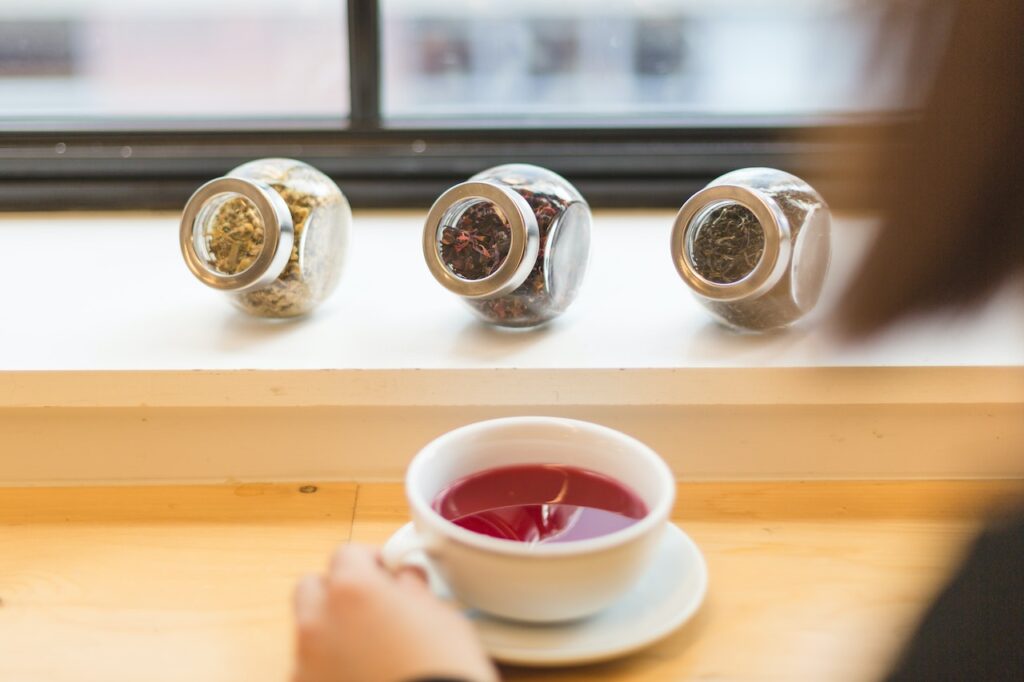
To make sure you get the most out of your herbs without encountering any negative effects, it is essential to adhere to their proper dosage guidelines.
✔️Choosing the Right Dosage
Choosing the right dosage depends on a few factors, such as age, body weight, and severity of symptoms. It’s always best to consult your healthcare provider or a licensed herbalist before taking any herbs, as they can provide personalized advice on what dosage is right for you.
Generally speaking, adults should take less than 3 grams of dried herb material or 1-2 ml of liquid extract daily. You should adjust Children’s doses based on age and body weight.
✔️Using the Right Formulation
Herbal medicines come in many different forms, including teas, tinctures, capsules, and powders. Each form has its advantages and disadvantages. So it’s essential to choose the right one for your needs.
For example, teas are great for convenience but may not be as potent as other forms like capsules or tinctures, which tend to contain higher concentrations of active ingredients. Tinctures can also provide fast relief. Since they are absorbed directly into the bloodstream, capsules must be digested before they take effect.
✔️Be Aware of Potential Interactions
It’s also important to know that some herbs can interact with other medications or supplements. So, checking with your healthcare provider before taking anything new is best. Additionally, certain herbs may not be safe for pregnant or nursing women. Thus, it’s important to research beforehand and ensure that whatever you take is safe for you and your baby.
Also, keep in mind that some herbs are more potent than others, so make sure that you follow dosing instructions carefully and stay within recommended dosages without consulting with a healthcare professional first.
Frequently Asked Questions
How Effective Is Herbal Medicine?
The effectiveness of herbal medicine depends on the type of herbs, dosage, and condition. Generally speaking, herbs have fewer side effects than over-the-counter or prescription drugs and are often just as effective in treating certain conditions. However, they are not a replacement for conventional medical treatments unless recommended by a qualified health professional.
Is Herbal Medicine Safe?
Yes, when taken in appropriate doses, herbal medicine can be safe for most people. It is important to remember that herbs are still potent medicines and can interact with certain medications or cause side effects if not taken properly. Before taking any herbal remedy, consult your doctor first to ensure it’s safe for you to use.
Is Herbal Medicine Better Than Traditional Medicine?
That depends on the individual situation and condition. Traditional medicines may be more effective for some conditions than herbs; for others, the opposite may be true. The best course of action will depend on the severity of your condition and whether or not traditional treatments are available or viable options for you.
How Do Plants Improve Human Health?
Plants contain many beneficial compounds that can boost our health – from reducing inflammation to improving cognitive function. Many plants also contain antioxidants that help fight free radicals in our bodies that can lead to disease and premature aging.
Which Herb is Called King of Herbs?
Regally referred to as the “king of herbs,” Basil is an incredibly powerful and tasty herb with many benefits. It consist of vital vitamins, minerals, and antioxidants that help digestion, reduces inflammation, nourish skin & hair, and improve overall immunity. Don’t just take our word for it – try adding this delectable treat to salads, sauces & other recipes!
Final Words
So, can herbs cure diseases? So, can herbs cure diseases? Despite their potential advantages, herbs are not a replacement for conventional medical treatments. Before taking any new herbal supplements or remedies, it’s critical to consult with your doctor first. With proper research, natural methods like herbal medicines can offer beneficial outcomes for various health issues.

